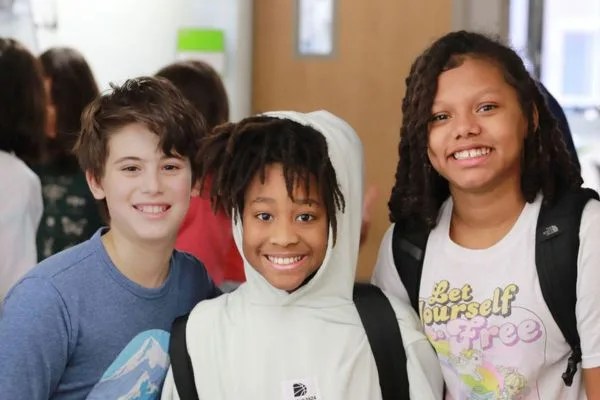Summer camp is an incredible experience for all children, but for children with special needs, camp can be a true respite from the challenges of everyday life and a chance to feel like they belong. Here are just a few of the many benefits of camp for a child with special needs:
Community
Many children with special needs often feel like they don’t fit in. They may not have many friends, and school, along with other social situations, are hard to navigate. Camp allows children with special needs to be part of a caring community.
“Special-needs camps provide children with an opportunity to truly belong to a community that’s designed specifically for them,” says Eric Sasson, director of Camp Akeela, a traditional co-ed overnight camp in Vermont that helps campers improve their social skills. “At camp, they meet others who share their interests and experiences — kids like them who understand their world view. For a few weeks each summer, they can be themselves without having to work so hard to fit in.
“At our final campfire on the last night of camp, we take time to reflect upon the time we’ve spent together as a community. We talk about all the campers’ wonderful accomplishments like becoming more independent, making new friends, and pushing themselves out of their comfort zone. We acknowledge that life outside of camp can be hard, and that not everyone they encounter will appreciate them for who they are. We encourage them, when faced with those difficulties, to remember how accepted and loved they feel in that moment, the final night of camp.”
Recreational activities
Often times, children with special needs have to forgo recreation to devote more time to academics, therapeutic interventions, or doctor’s appointments.
“One of the best aspects of camp for the special-needs camper is the opportunity to catch up on some well-deserved time to explore their interests, take a break, and learn how to structure their own leisure time, a skill that will help fend off depression that many special-needs adults are at risk for developing,” says Leah Love, assistant director of Summit Camp and Travel, a therapeutically designed sleep-away program in Pennsylvania for children with developmental, social, emotional, and learning issues.
“Athletics and team sports are often a lagging area for our campers. Throughout the course of the summer, our campers are given many opportunities to improve their skill and their ability to deal with competition, being part of a team and even dealing with the frustration associated with losing,” says Daniel Selmer, director of Endeavor, a program at Crestwood Country Day Camp in Melville, N.Y., tailored to meet the needs of children who have various social and emotional needs. “For those of our campers who take a liking to a specific sport or activity, we’re able to join with other groups at camp, so they can play more competitively. For those of our campers who prefer to play at a basic level, they are able to do so. This helps our campers be better prepared when they return to school or get together with friends and peers to play.”
Friendships
One of the greatest parts of the camp experience are the strong friendships that are formed. For children with special needs, this is one of the most important benefits of going to camp, since making friends can often be challenging.
“By bringing together children with similar strengths, challenges, interests, and experiences, special-needs camps are the perfect place for kids to connect with one another,” says Sasson. “One of the many benefits of any camp is a break from technology. For many children with special needs, this break is especially important. Handheld games are most often a solitary activity, and for children who have difficulty fitting in at school or interacting with their peers, this can be a source of comfort, but can also be quite isolating.
“When they do not have their video games to rely on, they are able to interact with their bunk mates, engage in activities, meet new people, and practice many of the critical social skills that are sometimes difficult for them.”
Life skills
As with any other camp, special-needs camps will teach children the life skills they need as they grow up.
“Camp offers the same benefits to the special-needs child as for any child. Children gain greater independence, increased self-esteem, a sense of purpose, and the chance to try new things,” says Love.
“Children are learning without feeling like they’re learning, and growing in ways that will shape who they become as adults,” adds Sasson. “Special-needs camp communities are intentional about building life skills lessons into everything they do throughout their daily schedules. Social-emotional growth is explicitly what special-needs camp is all about, and at our camp, we focus on empathy and emotional intelligence, communication and listening, kindness and respect for others, and critical thinking and problem solving.”
Jess Michaels is the director of communications for the American Camp Association, New York and New Jersey, a not-for-profit organization dedicated to enhancing the summer camp experience. For free, one-on-one advice in finding a camp, call the American Camp Association at (212) 391–5208.






















